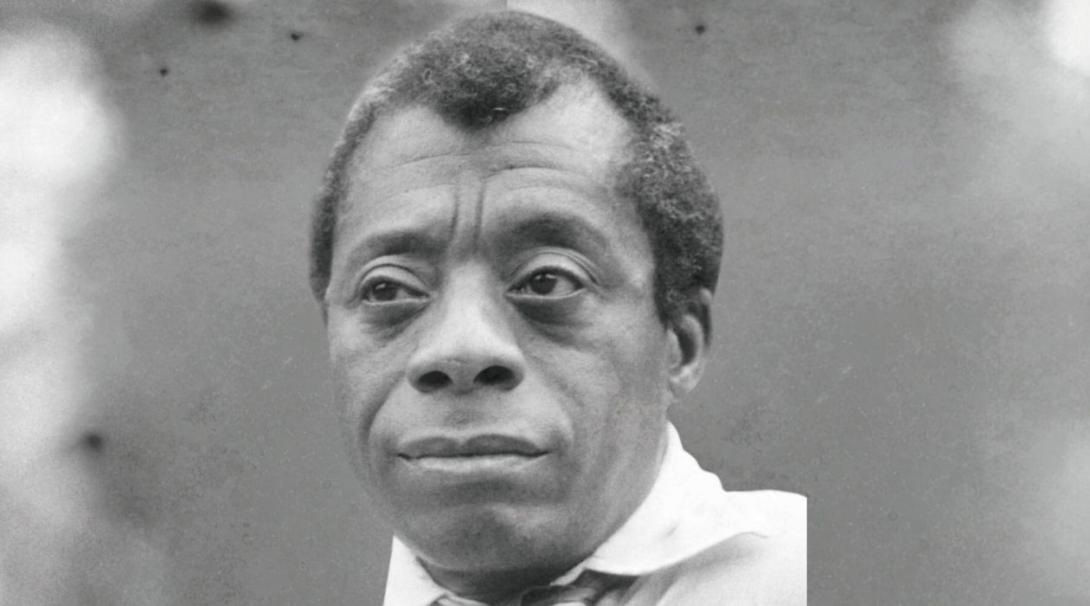
© Photo by Allan Warren | wikipedia.org
In the summer of 2019, I rode a bus high into the Swiss Alps to visit the most important site in American race relations that nobody knows about. I was doing research into the book of mine on James Baldwin that has just been published. The Black author and social critic came to the tiny village of Leukerbad in 1951 to try and solve a problem in his novel, Go Tell It on the Mountain. What he experienced there in Switzerland not only changed his understanding of race and America, but speaks loudly to us in this divided moment.
Leukerbad was (and to some extent remains) a tiny resort village whose year-round population is unrelievedly white. While Baldwin was there writing and thinking, the villagers thought of him as exotic. They had never seen anyone like him before.
The idea of racial separation—that people belonged “where they came from”—seemed as real to Baldwin in Leukerbad as it did in the States. He was clearly an alien there, an outsider, visibly not “from” there. The seminal essay that grew out of his experience would end up being called, “Stranger in the Village.”
Some Americans, not all of them remembered as racists, have been moved to follow this logic that the races should be separated, that people should and could go back to their ancestral homes (“where they belong”). Abraham Lincoln long thought that perhaps the solution was to return Black people to Africa, and certainly in our time there are many politicians who vocally encourage those with whom they disagree—most often, people of color—to go back where they came from.
Baldwin’s conclusion when he came down from the Alps did not support the separation of the races, or the idea that Americans of any sort could be sent away. Just as Lincoln says of the North and South in his first inaugural address: “We cannot separate,” Americans of every creed and color and political persuasion and economic reality are tied together in the common experiment that is America, and no one can be extracted because we disagree with them or hate them or fear them. What it means to realize that we cannot separate ourselves, Baldwin says, is that we are forced to reckon with the Other, the person who doesn’t resemble us.
As an African-American man, Baldwin put it like this: “The black man insists, by whatever means he finds at this disposal, that the white man cease to regard him as an exotic rarity and recognize him as a human being.” Today, we might easily substitute for “black man” the Jew, the Muslim, the Salvadoran, the Asian, the trans woman.
America cannot be dialed back to a time when only white Protestant Christian men were heard, however loudly or stridently some might long for those days. In fact, as Baldwin points out, the very vehemence of the argument, the necessity, say, for a crowd at a campaign rally to chant “Send them home,” implies, Baldwin tells us, “a certain unprecedented uneasiness over the idea’s life and power, if not, indeed, the idea’s validity.”
You can’t send them home, any more than any “white” American can be sent home. We are here out of necessity, living in mutuality, in the need to acknowledge and understand each other, and that easy and nonexistent solution is just an emotionally-satisfying racist chant, not a policy solution.
A few years back, I spent time with Rowan Williams, the past Archbishop of Canterbury and one of the world’s more formidable intellects; we wrote a book together. I will always remember a conversation we had on this topic, when he told me that it is essential we enter into dialogue with those we don’t understand or don’t like because, quite simply, “they are not going away.” This was Baldwin’s conclusion, as well, after coming back from Leukerbad.
On the train back to Geneva in 2019, I sat across from a Muslim girl chatting excitedly on her phone, and just behind an Asian woman dressed to the nines. I got off the train in Geneva surrounded by faces that did not look like my face, by people speaking languages that I do not speak. Even Switzerland, land of chocolate and cuckoo clocks and whiteness is no longer a racial monolith, and only someone blind or willfully ignorant could fail to notice this.
“People who shut their eyes to reality simply invite their own destruction,” Baldwin concludes, “and anyone who insists on remaining in a state of innocence long after that innocence is dead turns himself into a monster.”
So, Baldwin’s prophetic words remind us that people of color, Jews, Muslims, gays, opinionated women, whoever someone might think of as the undesirable who needs to be sent away to preserve American purity are not Them.
They are Us. They are not going home. They are home. And it is our task to build an idea of America big enough to encompass us all.












